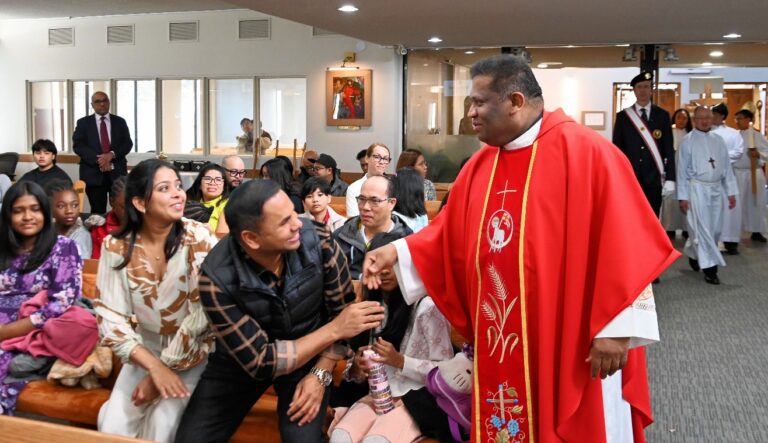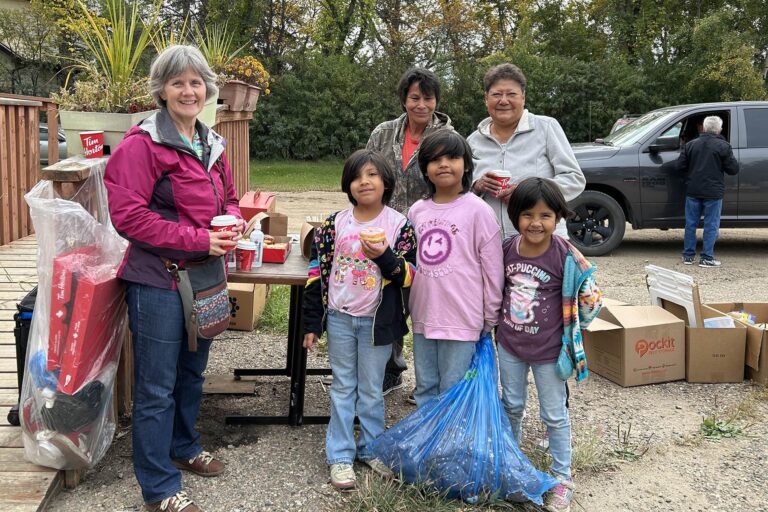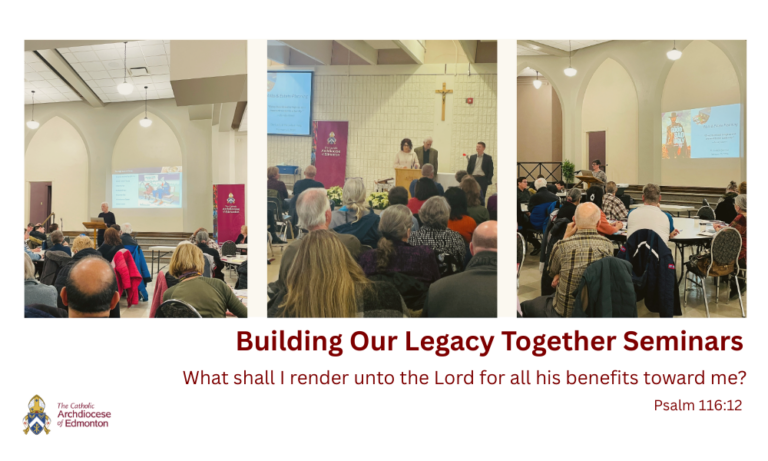Catholics are being called to take action, in their community and amongst their friends and family, as Canada continues to expand the scope of assisted suicide and euthanasia.
“Our role as Catholics is to support the vulnerable because Jesus himself identifies with the vulnerable,” said Deacon Larry Worthen, executive director of the Christian Medical and Dental Association.
“We have a responsibility as Catholics to be there for people who don\’t have anybody to advocate for them. And so as Catholics there\’s a huge call to action.”
Deacon Worthen is coming to the Archdiocese of Edmonton on Feb. 8 to offer a public lecture that will answer the question “What’s Wrong with MAiD?,” from a Catholic and legal perspective. For more information and to RSVP today, see here.
His lecture will provide the latest information on euthanasia and assisted suicide law in Canada, known as Medical Assistance in Dying or “MAiD”, and strategies for Catholic to speak to this issue in their community and with family and friends.
In 2022 alone, a reported 13,241 people died by euthanasia and assisted suicide in Canada, accounting for 4.1% of all deaths that year – an increase of 31.2% over 2021.
Since the introduction of federal legislation in 2016, more than 44,958 “MAiD” deaths have been reported. Assuming the same growth rate of approximately 30% per year, Deacon Worthen said that more than 50,000 vulnerable individuals have died by euthanasia to the end of 2023.
Canada has the most permissive policies on euthanasia and assisted suicide in the world, according to Deacon Worthen.
“We\’re way out ahead,” Deacon Worthen said. “We are even ahead of the Netherlands. I spoke at an international conference in Tanzania in June. There were 1,000 delegates from all over the world, medical doctors. And they were totally shocked with where Canada was coming from,” Deacon Worthen said.
“The Netherlands are considered pioneers in this area – they started in the 1970s – and yet I spoke with a doctor from the Netherlands and even she was shocked at what is happening in Canada.”
Canada is set to expand eligibility for euthanasia and assisted suicide to persons suffering solely from mental illness, beginning March 17.
“Resources for mental health in Canada are terrible to start with. The average wait time to see a psychiatrist in Canada is six months. . . But people with psychiatric illness are going to be able to get MAiD just three months after they apply.”
“It was clear to [legislators and doctors] that there needed to be additional safeguards to protect people with psychiatric illness who have suicidal ideation. But the government approved the expansion of MAiD without having a plan for how to protect these vulnerable persons. I\’ve been so upset about it, because I know that there will be people who will be dying from MAiD because they did not have proper access to other life-saving resources and care.”
Deacon Worthen points out that the Church has the opportunity to be a great force for good.
However, there is a need for education. A 2014 Angus Reid poll showed that 70 per cent of Catholics who had attended Mass at least once in the previous month, thought that assisted suicide should be legal.
Catholics are not only sometimes supportive of assisted suicide, Deacon Worthen said. There are Catholics choosing MAiD for themselves, because of a poorly formed conscience.
“Sometimes we think. . . the moral teachings of the Church are abstract. It’s just so intellectual. But it comes from God. And because of that, there is a very good reason for the teaching. My presentations are always at a level that the average person can understand. And I\’ll be using clear examples.”
For Deacon Worthen, the issue is also personal. In 2009, Worthen’s own father—diagnosed with cancer—asked for euthanasia, before it was made legal in Canada in 2016.
“I had to learn how to reach him and how to talk to him and support him in the midst of that crisis. He did not receive it, he died naturally, but it still broke my heart that he asked for it.”
Deacon Worthen saw that his father needed love and accompaniment.
“I needed to understand what his fear was, what he was going through emotionally. I realized he was losing his self-identity. He was losing who he was, and he felt like he wasn\’t sure there would be anything left. So we had to talk a lot about that. And I had to reassure him of our love for him, that we needed to care for him, and how it was helping us to be able to help him.”
“I\’m so grateful to have had that time with my dad, because when he died I had absolutely no regrets, there was nothing but love and peace. And it just makes me sad to think about other people not having that.”
“So my message will be a down-to-earth simple presentation to help people who are also in this situation. We will talk about morality, but also how to accompany those who are suffering with love and compassion.”
Deacon Larry Worthen is executive director of the Christian Medical and Dental Association. He is a lawyer, trained facilitator, adult educator and mediator. He is also a deacon for the Archdiocese of Halifax-Yarmouth.
To hear more stories about the Catholic faith coming alive in the Archdiocese of Edmonton, subscribe to our weekly newsletter, The Window



